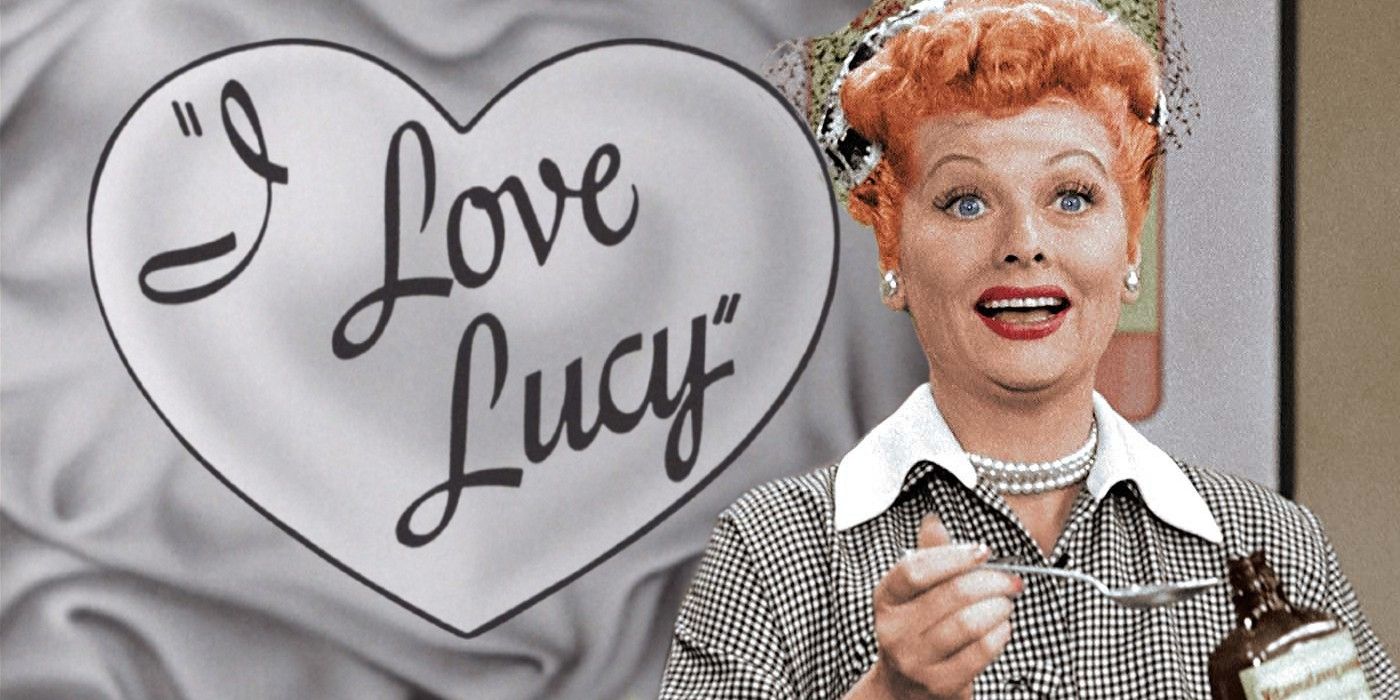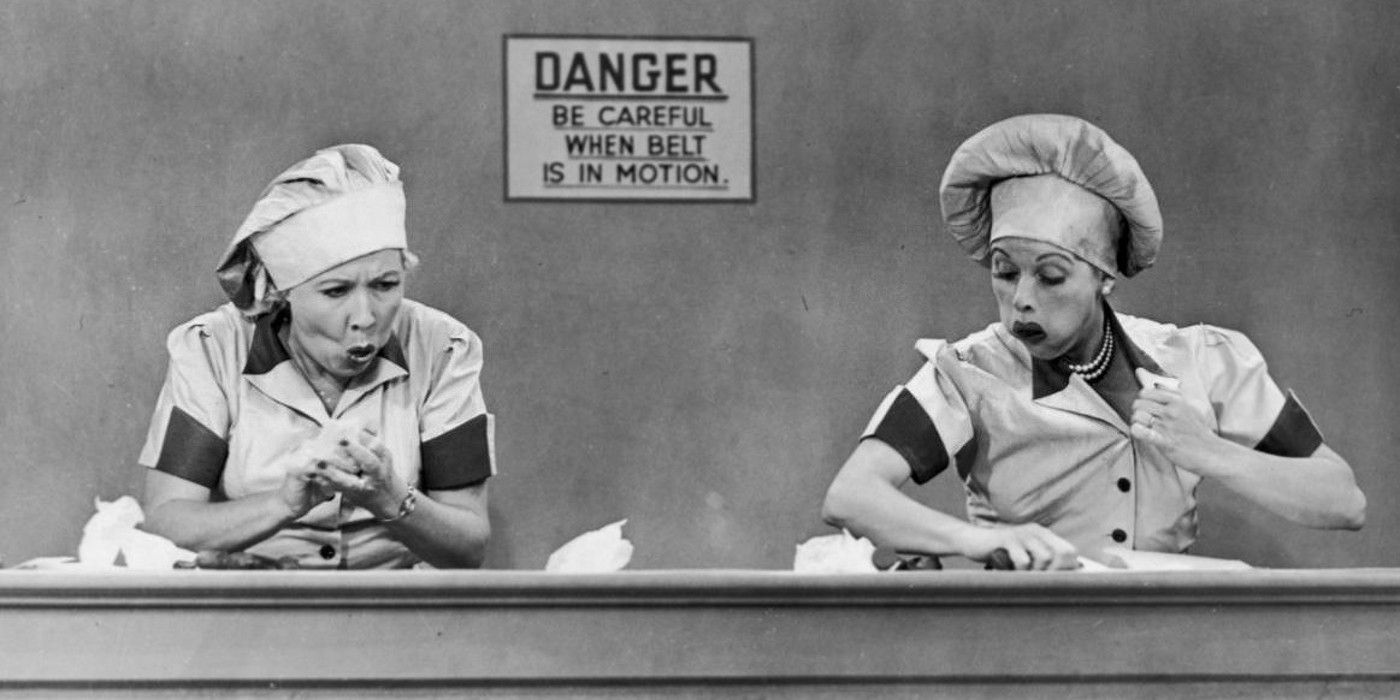Of all the sitcoms ever aired, I Love Lucy might be the most influential. Released during a time when women were expected to be wives and mothers and nothing else, Lucille Ball as Lucy Ricardo shattered that conservative notion by wanting and pursuing more. TV had seen nothing like it before, and without I Love Lucy, other influential television shows like Seinfeld wouldn't have been made.
I Love Lucy premiered on CBS in 1951 and ran for 6 seasons, chronicling Ricky and Lucy Ricardo's marriage and Lucy's frequent hijinks with her best friend and neighbor Ethel. Ricky is a successful nightclub owner and Lucy is a flighty housewife searching for fame. Lucille Ball's physical comedy was the main selling point, though there were several other factors that made the show so groundbreaking for its time.
Apart from the consistent humor, I Love Lucy made a mark on television history by having the first multiethnic relationship on the small screen, as Lucy is white and Ricky is Cuban. While Ricky is super conservative and believes Lucy should stay at home – he threatens to take away her allowance when she doesn't pay the bills on time – Lucy is a progressive homemaker who spends her time taking odd jobs and having Ethel join in on local adventures. Lucy and Ethel are the ultimate embodiment of female friendship, which has influenced so many other classic sitcom relationships. Another significant event was Lucy and Desi Arnaz's real-life pregnancy, which was eventually written into the show with the guidance of religious figures. Sex was not spoken about in mainstream media, so it was important they handled her pregnancy very carefully. Nearly 45 million viewers tuned in to the birth episode, 19 million more than President Eisenhower's Inauguration the following day.
I Love Lucy was also the first show to have a live studio audience instead of using canned laughter. Live studio audiences contributed to the energy of the show, and Lucille Ball appreciated the viewers' feedback in the moment. Additionally, it was one of the first sitcoms to utilize a multi-camera set-up, which led to better quality film and a variety of wide and close-up shots. Even though Desi and Lucy opted to film in Los Angeles to raise their daughter and took a pretty sizeable cut in income, they earned millions back in reruns.
I Love Lucy inspired and continues to inspire an emphasis on women's friendships, exploring beyond societal norms, and genuinely hysterical slapstick humor. Though Lucille Ball went on to produce and star in other shows, nothing compared to the well-deserved success I Love Lucy enjoyed. It will remain a classic television staple for years to come.


